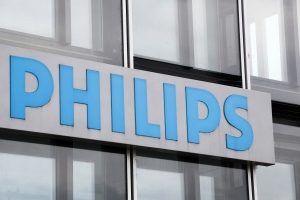by
John R. Fischer, Senior Reporter | January 31, 2023

Philips will eliminate 6,000 jobs by 2025 as part of reorganizing plans.
Philips will lay off 6,000 employees worldwide as it focuses on regaining profitability and improving the safety of its products following its ventilator recall.
The company announced the news on January 30, saying half of the 6,000 jobs would be eliminated this year, with the other half gone by 2025. This follows
other job cuts undertaken by the company in recent months, bringing the total number of layoffs to 10,000, or around 13% of its current workforce.
"We do not have a breakdown of impact per function nor country at this time," Ben Zwirs, senior press officer for Philips' global press office, told HCB News. "Should there be any impacted employees in the U.S., then we will act with respect towards these impacted colleagues and provide support to aid in their transition."



Ad Statistics
Times Displayed: 76038
Times Visited: 2576 Ampronix, a Top Master Distributor for Sony Medical, provides Sales, Service & Exchanges for Sony Surgical Displays, Printers, & More. Rely on Us for Expert Support Tailored to Your Needs. Email info@ampronix.com or Call 949-273-8000 for Premier Pricing.
Shares for Philips rose 5.5% following the news and the release of its fourth-quarter earnings which were better than expected,
according to Reuters.
Philips is adopting a strategy of focused organic growth, focusing on more impactful projects and taking patient safety, quality, and customer needs into greater account. It aims to reach mid-single-digit comparable sales growth and a low-teens Adjusted EBITA margin by 2025, further expanding to a mid-to-high-teens margin beyond 2025.
Its plans include completing the Respironics recall and test program in 2023 and managing the impact of the proposed consent decree; managing the U.S. Justice Department’s ongoing investigation and litigation related to the Respironics recall; changing its supply chain to a dedicated end-to-end set-up by business to better manage supply chain reliability; and simplifying its operating model to end-to-end businesses with single accountability.
Additionally, the organization plans to improve its execution by expanding its leadership positions in image-guided therapy, monitoring, ultrasound and personal health business segments; scaling its enterprise informatics business; improving its imaging business; and restoring its sleep and respiratory care business.
Operational challenges such as the
recall of 5.5 million BiPAP and CPAP machines has hindered Philips’ ability to profit from its strong market positions. The recall was initiated after it was discovered that the sound abatement foam within them could break down and release carcinogenic particles that could enter a device’s airway pathway, becoming toxic and possibly causing cancer.
The company also
recalled over 18 million sleep apnea masks, due to a risk of their magnets interfering with implanted metal medical devices. Along with inflation woes, these events led the company to announce in October that it would be eliminating 4,000 jobs, a 5% cut of its workforce.
Roy Jakobs, Philips CEO, called the workforce reduction “difficult but necessary” and said that he was “confident that these comprehensive actions will put Philips on a progressive path to value creation with sustainable impact.”

